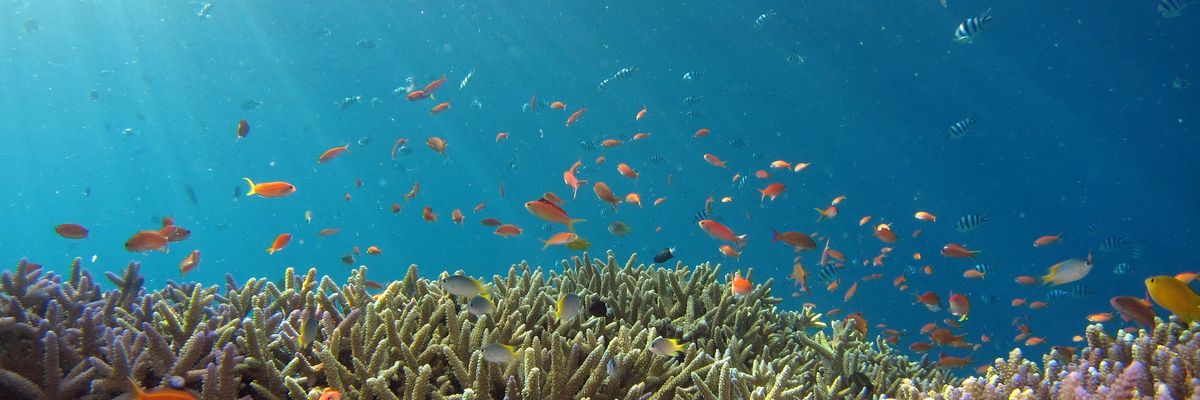Conservation advocates on Monday urged world governments to "keep up the momentum" and ratify the United Nations global oceans treaty as quickly as possible after U.N. members formally adopted the agreement in New York, bringing the world one step closer to achieving crucial protections for the high seas.
The treaty—formally called the Biodiversity Beyond National Jurisdiction (BBNJ) Treaty—will protect ocean waters that lie beyond territorial borders, and has been called a key component of achieving the U.N.'s "30x30" goal of protecting 30% of land and sea by 2030.
The language of the agreement was agreed upon in March, and the formal adoption of the treaty was called "a win for all life on this planet" by Chris Thorne of Greenpeace's Protect the Oceans campaign.
"Now those same governments which agreed it must urgently ratify and begin delivering vast ocean sanctuaries on the high seas," said Thorne in a statement. "2030 looms large on the horizon, and the scale of our task is vast."
Greenpeace gave credit to grassroots campaigners who have worked for decades to pressure policymakers to protect the world's oceans and marine life.
The 30x30 goal was agreed upon last December as part of the Kunming-Montreal Global Biodiversity Framework, and scientists say it is the minimum level of protection needed to maintain healthy oceans, which are home to hundreds of thousands of marine species and are crucial for maintaining biodiversity, the world's economies, and a key carbon sink.
The treaty text allows for the creation of "vast ocean sanctuaries, free from destructive human activities on the high seas," said Greenpeace, as well as requiring environmental impact assessments for human activities and equity in the sharing of benefits from marine resources.
Sixty governments need to ratify the BBNJ to ensure that it enters into force and becomes legally binding, and advocates want the ratification process to be completed within the next two years.
"Less than 1% of the high seas are protected," Thorne said. "We will work day and night to ensure this treaty is ratified in 2025, and ocean sanctuaries free from destructive human activities covering 30% of the oceans become a reality by the end of this decade."
The treaty will become international law 120 days after the 60th country ratifies it, and will provide the first legal framework to protect the world's oceans outside of territorial boundaries.
"We praise countries for moving one step closer towards putting this political accord into action in the water by formally adopting this landmark treaty today," said Rebecca Hubbard, director of the High Seas Alliance. "Countries must now ratify it as quickly as possible to bring it into force so that we can protect our ocean, build our resilience to climate change and safeguard the lives and livelihoods of billions of people."
The new milestone on the road to a legally binding treaty came weeks after scientists warned that carbon emissions are pushing crucial Antarctic currents toward collapse, threatening the distribution of oxygen and nutrients to marine life, and as researchers warn of the "exponential growth of microplastics in the global ocean."
"With today's adoption of the BBNJ agreement, governments have taken a significant step towards protecting the ocean, building resilience to climate change, and proactively addressing and preventing transboundary pollution," said Fabienne McLellan, managing director of OceanCare. "It is now up to governments to seize this opportunity and to turn all their ocean-related commitments into action by signing and ratifying the treaty as soon as possible."
"This treaty can be the game-changer the ocean and we all desperately need," said McLellan. "The state of the ocean is dire, we simply cannot afford to fail."
